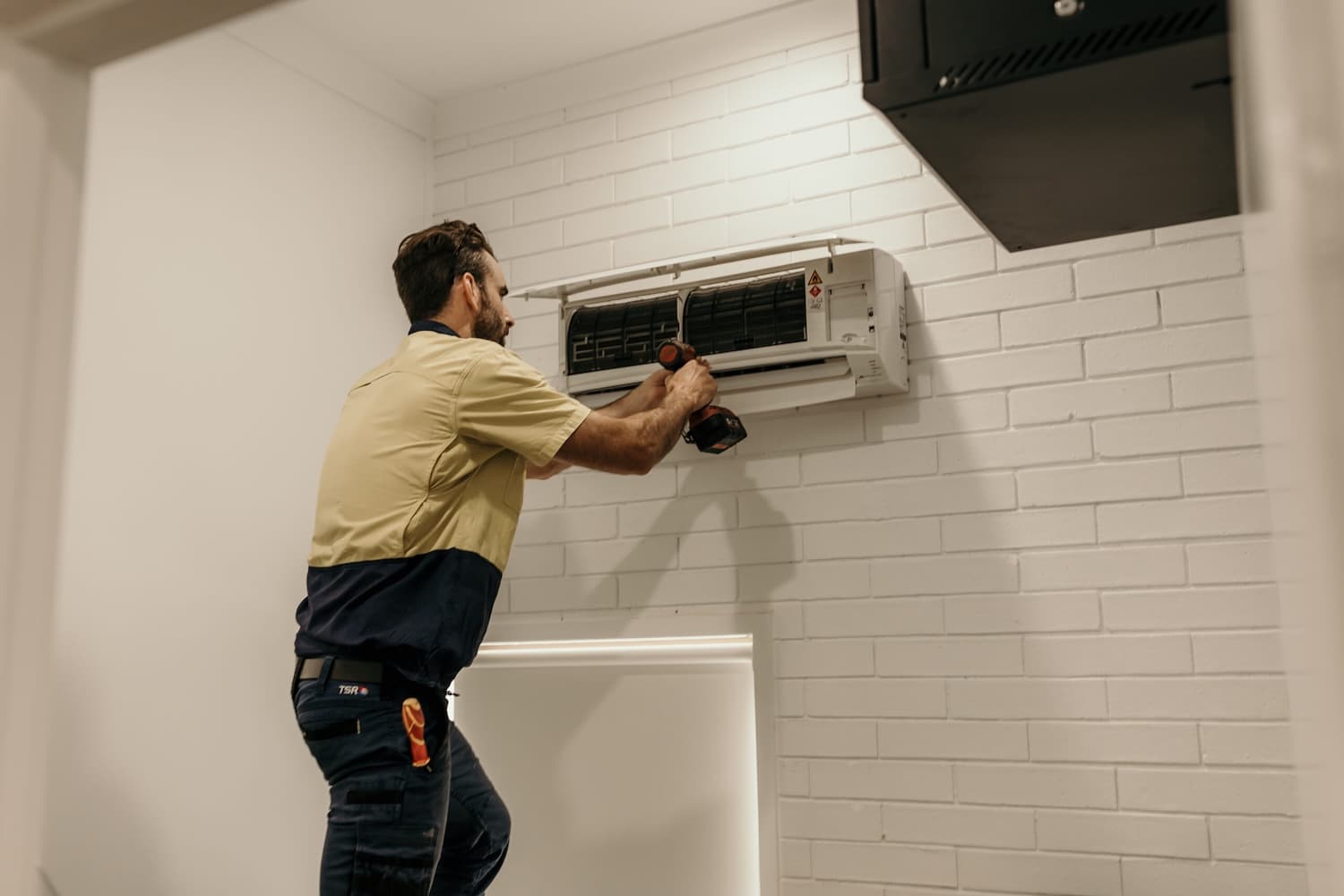Can you get a sore throat from an air con?
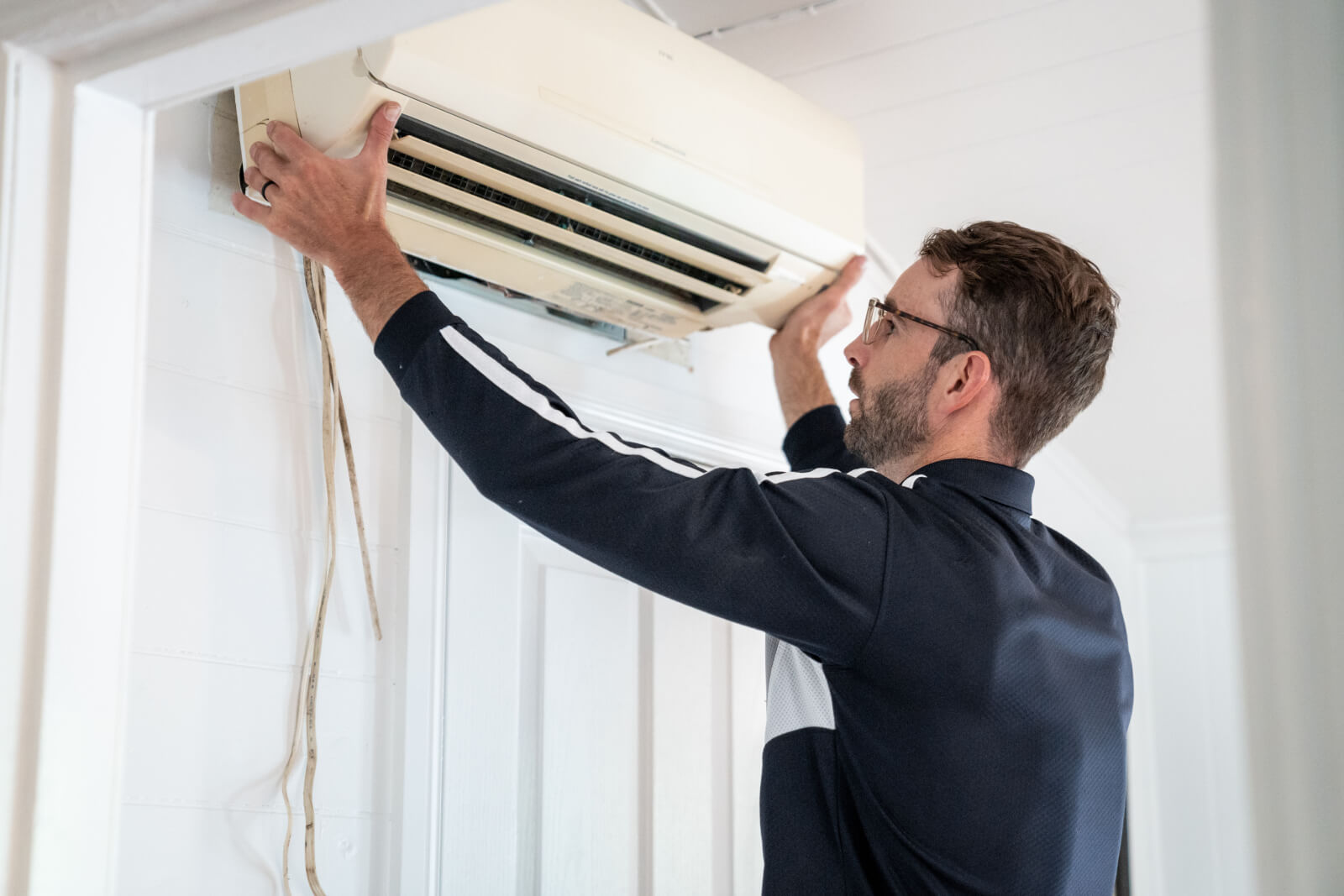
Air conditioning systems can contribute to sore throats through dry air, poor maintenance, and contaminated filters, but understanding the root causes helps you prevent this uncomfortable problem. Whether you’re dealing with a persistently scratchy throat at home or experiencing workplace discomfort, the connection between your aircon and throat irritation often comes down to air quality, humidity levels, and system cleanliness rather than the cooling process itself.
The science behind aircon-related throat irritation
Your air conditioning system doesn’t directly cause sore throats, but it creates conditions that make throat irritation more likely.
When your aircon runs, it removes moisture from the air, reducing indoor humidity levels to a safe, comfortable level. Your throat’s natural protective mechanisms rely on adequate moisture to function properly.
The mucous membranes in your throat act as your body’s first line of defence against airborne particles and pathogens. When the air becomes too dry, these membranes lose their protective moisture barrier, becoming irritated and inflamed. This creates the perfect environment for bacteria and viruses to take hold and you feel like you have a sore throat from air con.
Key factors that contribute to a sore throat from air con:
- Humidity levels below 40% dry out throat tissues
- Rapid temperature changes shock your respiratory system
- Stagnant air circulation allows contaminants to accumulate
- Poorly maintained filters release particles and allergens
Temperature shock also plays a role in your sore throat when you move between hot outdoor air and heavily air-conditioned indoor spaces. This sudden change forces your respiratory system to work harder, potentially causing inflammation and discomfort.
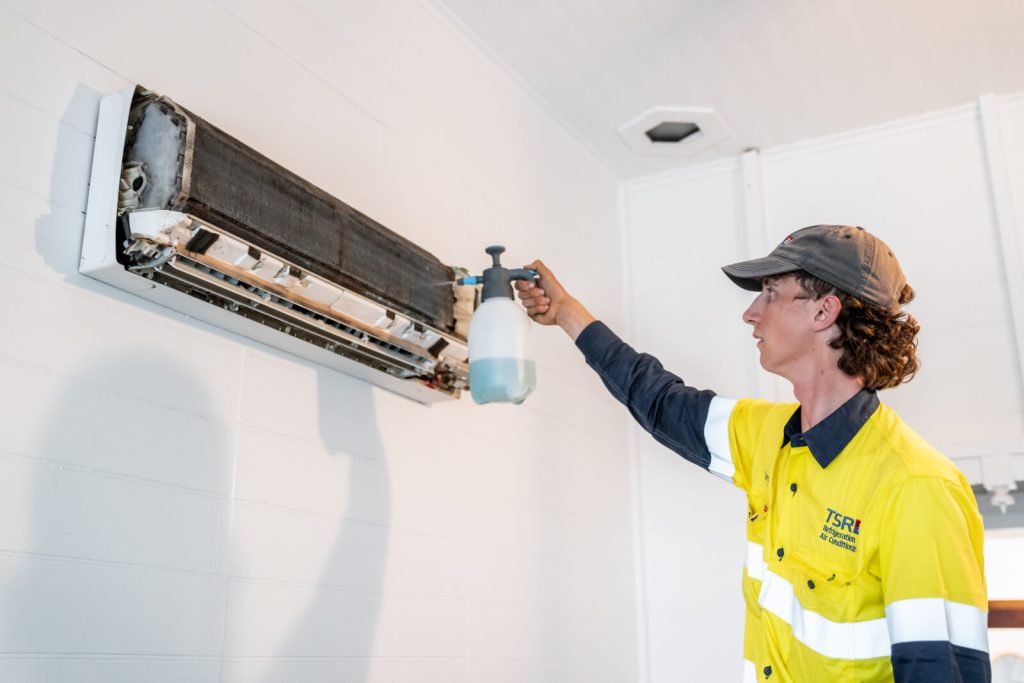
Hidden culprits in your air conditioning system
The real troublemakers lurking in your aircon system might surprise you. Dirty filters act like breeding grounds for mould, bacteria, and dust mites. When your AC runs, it circulates these contaminants throughout your space, causing throat irritation, coughing, and respiratory discomfort. Learn more about how dirty air conditioners impact your health.
Sarah from Noosa discovered this firsthand when her family kept getting sore throats. After our technician inspected their ducted system, we found the filters hadn’t been changed in over 18 months. Within a week of professional cleaning and filter replacement, the family’s throat problems disappeared completely.
Blocked AC drainage systems create another problem. When condensation can’t drain properly, it pools inside your unit, creating perfect conditions for microbial growth. This contaminated moisture then gets blown into your living or working space.
Refrigerant leaks can also cause throat irritation through chemical exposure. Modern refrigerants are designed to be safer, but any leak requires immediate professional attention.
Professional prevention strategies that work
Regular maintenance prevents most aircon-related throat problems before they start. Our 35+ years servicing Gympie homes and businesses shows proactive care eliminates most of air quality issues.
Essential maintenance schedule:
- Filter inspection and replacement every 6-8 weeks
- Professional system cleaning twice yearly
- Drainage system checks during routine services
- Ductwork cleaning every 2-3 years for ducted systems
Humidity monitoring also makes a substantial difference in comfort levels. Installing a hygrometer helps you track indoor humidity. According to the National Asthma Council Australia, most people find relative humidity between 30-60% most comfortable, with indoor humidity ideally between 30-50%.
Quality filtration systems are worth considering too – they capture airborne nasties before they circulate. HEPA filters, which meet Australian Standard AS 4260, remove 99.97% of particles larger than 0.3 microns, including most bacteria and allergens that cause throat irritation.
Smart operation tips for healthier indoor air
How you operate your air conditioning system significantly impacts your throat health. Gradual temperature adjustments reduce the shock to your respiratory system. Instead of setting your thermostat 10 degrees below outdoor temperature, aim for a 6-8 degree difference.
Optimal operating practices:
- Set temperature between 22-24°C for comfort without overdrying
- Use fan-only mode to circulate air without excessive cooling
- Open windows briefly each day for fresh air circulation
- Clear furniture away from direct airflow paths
Your throat produces less natural moisture whilst you sleep, making it more susceptible to dry air irritation. Consider using a timer to reduce overnight cooling, or invest in a humidifier for your bedroom.
Split system positioning affects air distribution. Directing airflow toward walls or ceilings rather than directly at people reduces the drying effect on sensitive throat tissues.
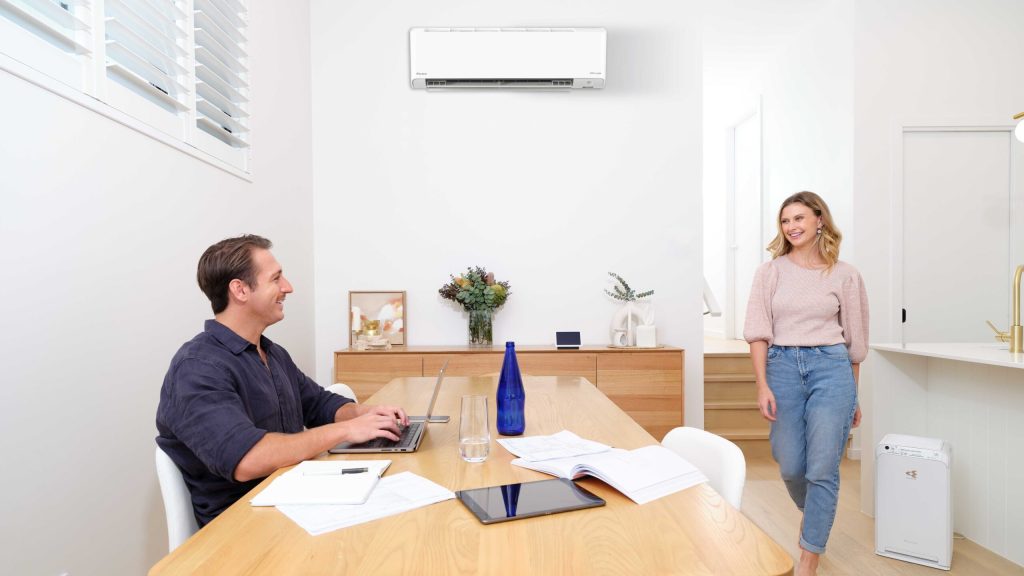
Get expert air conditioning health solutions
Persistent throat problems despite following prevention strategies are a sign of deeper issues that are best checked by a professional. If you experience any of these things when using your AC, get in touch with your local air con business:
- Strange smells
- Visible moisture or mould around vents
- Increased allergy symptoms
- System cycling on and off frequently
Don’t let aircon-related throat irritation affect your comfort and health. Our TSR team combines 35+ years of local experience with modern diagnostic tools to sort out air quality problems fast.
Contact our experienced technicians for a comprehensive system health check, or request a quote for professional maintenance that keeps your air clean and your throat comfortable.
Please Share This
Related Posts

How to Stop Salt Air Destroying Your Hervey Bay Air Conditioner
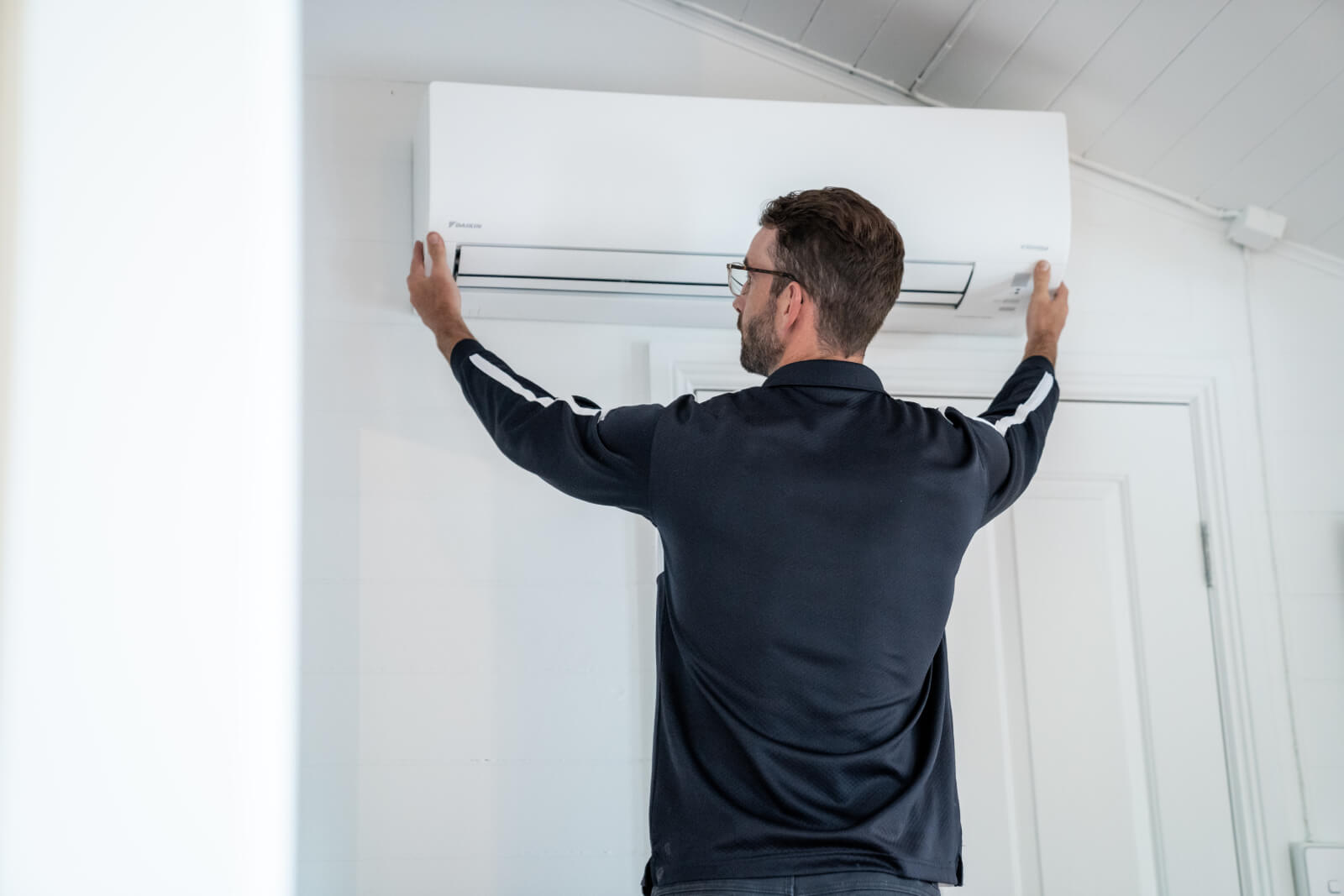
Top Reasons Your Air Con Isn’t Blowing Cold Air and How to Fix It
